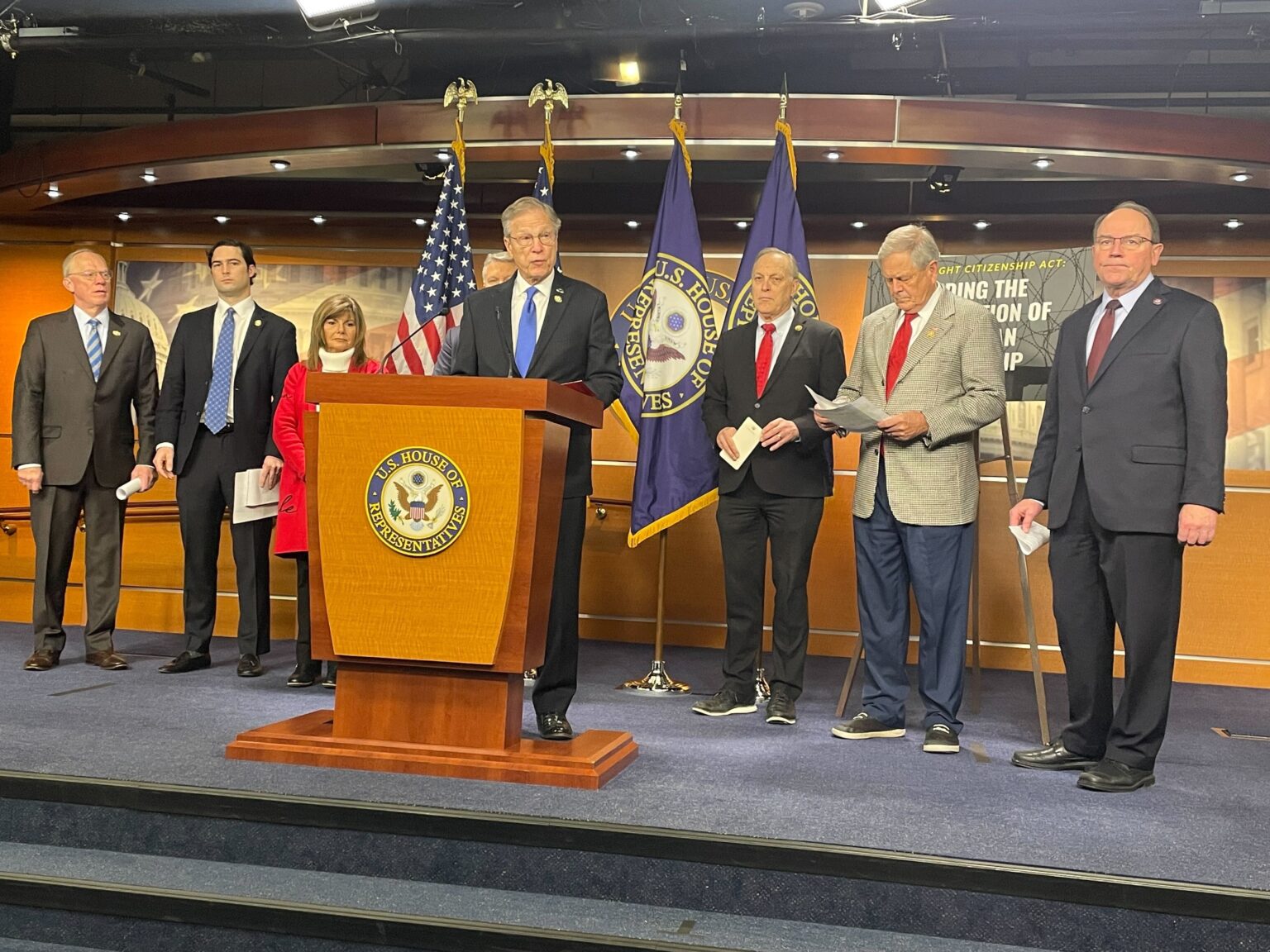Washington Despite the fact that birthright citizenship is guaranteed by the U.S. Constitution, House Republicans on Thursday introduced legislation that would change federal immigration law to limit its reach, in accordance with President Donald Trump’s executive order to do away with it.
With oral arguments on a multistate case beginning Thursday in federal court in Washington state, Trump’s Monday executive order has already encountered formidable legal opposition from the ACLU and Democratic state attorneys general.
House bill H.R. 569’s sponsor, Republican Representative Brian Babin of Texas, said he applauded the legal challenges to Trump’s law and executive order.
He stated, “We value and desired the challenges to this.” in order for it to be heard by the US Supreme Court. Up to three years may pass before this case reaches the supreme court, at which point we’ll see how they decide.
Republican Representative Andy Biggs of Arizona, who attended the news conference as well, stated that he believes the GOP plan will be sustained in the courts despite an 1898 Supreme Court decision that affirmed the 14th Amendment’s guarantee of birthright citizenship.
Reps. Mike Collins of Georgia, Diana Harshbarger of Tennessee, Brandon Gill of Texas, John Rose of Tennessee, Tom Tiffany of Wisconsin, and Ralph Norman of South Carolina were among the other Republicans present at the press conference.
In the end, I think—and I’m forecasting and predicting—that the U.S. Supreme Court will decide that this specific piece of legislation is constitutional when it comes to that court, Biggs stated.
Trump has strengthened the conservative 6-3 majority on the Supreme Court by appointing a third of the justices.
In 1898, the Supreme Court affirmed the 14th Amendment’s birthright citizenship clause, which states that all children born in the nation are entitled to citizenship, with the exception of infants born to foreign diplomats.
According to Trump’s Monday executive order, which terminates birthright citizenship, the federal government is prohibited from recognizing or granting citizenship documents to any child born after February 19 to parents who are in the country illegally or to children whose parents are noncitizens and one parent is in the country temporarily.
Approximately 1.8 million children born in the United States have two illegal parents, and 5.5 million children have at least one undocumented immigrant parent.
Babin’s bill would amend the Immigration Nationality Act, a federal immigration statute. It states that children born in the United States with at least one parent who is a citizen, a green card holder, or a legally recognized immigrant serving in the armed forces will be granted citizenship.
The possibility that some parents may have another kind of lawful immigration status, such work or student visas, is not addressed. Although there will probably be immediate legal challenges, the measure text states that it would only impact infants born after it is signed into law.
According to Babin, this is about making sure that citizenship, which is a fundamental component of our national identity, is upheld, safeguarded, and consistent with the ideals upon which this nation was founded.



